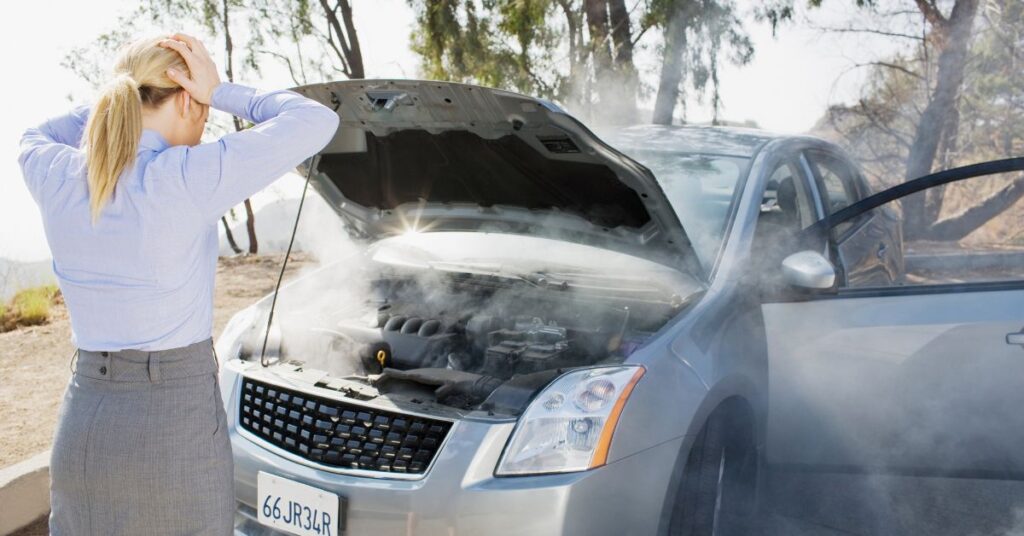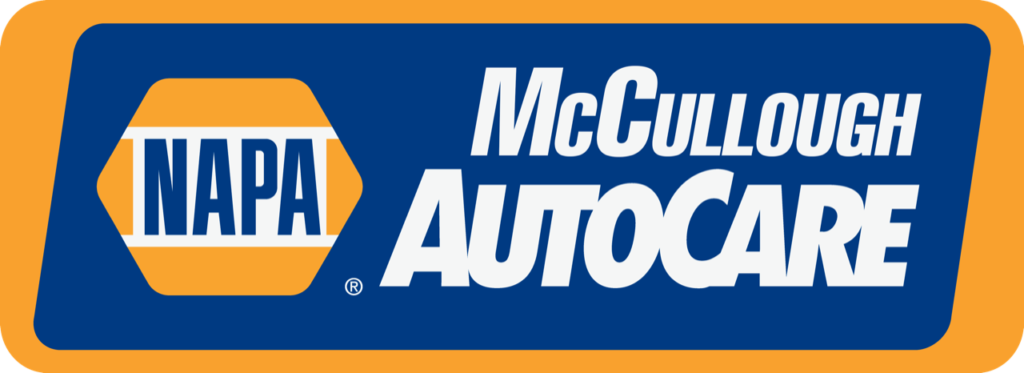
Table of Contents
Imagine – your family is eagerly heading out on a long-awaited road trip. Suddenly, your vacation excitement turns into roadside dismay as steam begins to billow from under the hood of their car. This sounds like a nightmare scenario, but is avoidable with the right preventative maintenance. This article will provide essential insights on what causes an engine to overheat, signs of an overheating engine, and what to do and not do when your engine overheats.
What Causes an Engine to Overheat?
Your vehicle’s engine operates under an optimal temperature range. Exceeding this temperature range can lead to overheating. Here’s what can cause this potentially severe issue:
Cooling System Leak
One of the most frequent culprits behind an overheating engine overheating is a leak in the cooling system. The cooling system is crucial for circulating coolant to reduce the engine’s temperature. Components such as the radiator, hoses, water pump, thermostat housing, and heater core are interconnected, and damage to any of these can lead to leaks.
When there’s a leak, the coolant level drops and the system can’t effectively absorb and dissipate heat from the engine. This results in the engine running hotter than intended, which, if unchecked, can lead to engine damage from overheating. Regular checks for puddles under the car, along with monitoring coolant levels and the condition of hoses and fittings, are essential to prevent this scenario.
Faulty Water Pump
The water pump is the heart of the cooling system and is responsible for circulating coolant throughout the engine and back to the radiator for cooling. A faulty water pump can result from a seal or bearing failure, leading to a coolant leak or reduced pumping efficiency.
If the water pump doesn’t circulate coolant properly, the engine will not receive enough cooling. This can cause the temperature to rise quickly and lead to engine overheating.
Bad Radiator
The radiator plays a key role in dissipating heat by allowing the hot coolant to release heat as air passes through the radiator fins. A lousy radiator can result from clogs, leaks, or fin damage that reduces efficiency. A clogged radiator prevents coolant from flowing freely, hindering the system’s ability to cool the engine effectively.
Physical damage or corrosion can also compromise the radiator’s function, making it unable to handle the thermal load, which leads to an overheated engine—ensuring that the radiator is in good condition and free from debris and obstructions is crucial for maintaining optimal engine temperatures.
Insufficient Coolant and Low Engine Oil
The level and condition of coolant and engine oil in your system are critical for optimal engine performance. Coolant not only transfers heat but also prevents corrosion within the cooling system. Insufficient coolant can lead to overheating, whether due to not topping up the levels, neglecting system flushes, or using the wrong type of coolant or diluted concentrations.
Similarly, engine oil lubricates and cools engine components. Low oil levels can result in inadequate lubrication, increasing friction and heat within the engine. This added heat increases overall engine temperature, exacerbating the overheating issue.
Signs Your Engine is Overheating
Recognizing the signs of an overheating engine can help prevent severe damage and costly repairs. Here are key indicators that your engine’s temperature is excessively high:
- Temperature Gauge or Warning Light: The temperature gauge may show a higher reading than normal. If this occurs, an engine warning light might also illuminate on your dashboard, indicating immediate attention is required.
- Steam from the Hood: If you notice steam or smoke emerging from under the hood, it’s a classic sign that your coolant is boiling and your engine is too hot.
- Unusual Engine Noises: Overheating can cause the engine to make knocking sounds, pinging, or other unusual noises. These sounds are often due to metal components expanding differently under excessive heat.
- Reduced Engine Performance: An overheating engine may feel sluggish or show a noticeable decrease in performance. This happens because the engine struggles to operate efficiently at higher temperatures, affecting its ability to generate power.
- Strange Smells: Overheating can produce a sweet, syrupy odor if the coolant leaks and burns off on the engine. This smell is a distinctive warning sign.
Being aware of these signs and responding quickly when you notice them can significantly reduce the risk of damaging your engine due to overheating.
What To Do When Your Engine Overheats
When your engine starts to overheat, immediate and appropriate action is necessary to protect your vehicle and your safety:
- Pull Over Safely: Immediately find a safe place to pull over and turn off your car. This stops the engine’s operation and prevents it from generating more heat.
- Open the Hood: Carefully open the hood once the car is safely parked and the engine has cooled for a few minutes. The hood will likely be hot, so use a towel or shirt to open the hood.
- Check Coolant Levels: Slowly check the coolant tank after allowing the engine to cool sufficiently. If it is low, and it’s safe to do so, add coolant or water as a temporary measure to help reduce engine temperature. Always use caution when opening the radiator cap – use a rag and open it slowly to release pressure and avoid scalding.
What Not To Do When Your Engine Overheats
Avoiding specific actions can be just as crucial as taking the right ones to prevent further damage to your engine or harm to yourself:
- Do Not Keep Driving: Continuing to drive with an overheating engine can cause severe damage, including a blown head gasket, cracked engine block, or warped cylinders. Stop driving as soon as you notice the temperature gauge rising.
- Do Not Open the Radiator Cap Immediately: Never open the radiator cap while the engine is hot! The coolant system is under pressure, and opening the cap prematurely can lead to a dangerous release of steam and hot coolant.
- Do Not Pour Cold Water Over a Hot Engine: While it might be tempting, pouring cold water on a hot engine can cause rapid contraction and potentially crack the engine block. Allow the engine to cool gradually.
- Do Not Ignore Warning Signs: Overheating may be indicated by dashboard warning lights, temperature gauges, or steam. Do not ignore these signs. Taking immediate action can save your engine and potentially your life.
Scheduled Maintenance Plans with McCullough NAPA
Taking care of your car doesn’t just involve responding to emergencies – it also involves preventive measures to ensure your vehicle runs smoothly and efficiently. At McCullough NAPA, we offer 30k/60k/90k preventative maintenance plans designed to keep up with necessary repairs and manufacturer-recommended services. This proactive approach helps you avoid unexpected breakdowns and maintain your car in peak condition.
Contact us today to schedule your maintenance appointment and ensure your vehicle stays reliable on the road, no matter the conditions.

